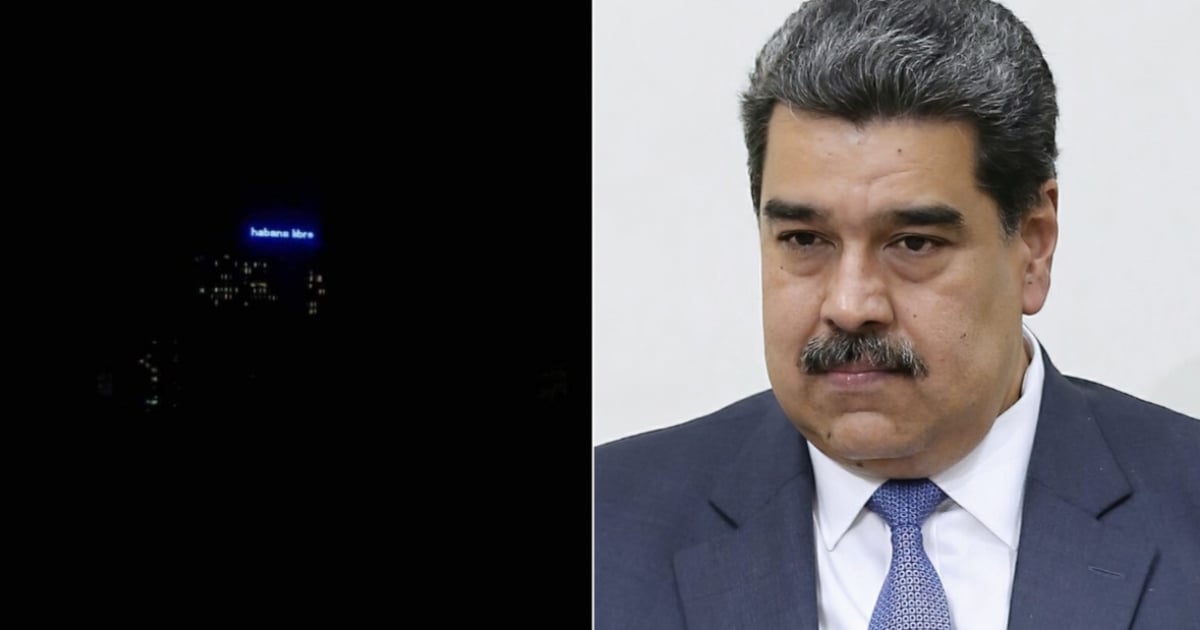Venezuela, through its state broadcaster Venezolana de Televisión (VTV), has placed blame on the United States for the widespread blackout affecting Cuba since October 18. The administration of Nicolás Maduro argues that the energy crisis on the island is a consequence of a so-called "economic war" and the sanctions imposed by the U.S., labeling them as an unjust blockade and a violation of human rights. The statement underscores “the efforts of the heroic Cuban people and President Díaz-Canel," calling on the international community, particularly Latin American and Caribbean nations, to back Cuba and dismiss U.S. accusations of terrorism.
It is worth noting that on August 30, Venezuela experienced a nationwide blackout. Many citizens saw this as a tactic by the Chavismo movement to divert attention from the country's dire situation, which has been mired in economic recession, hyperinflation, and deteriorating public services, including frequent power outages, for almost a decade.
The Decline of Venezuelan Oil: A Factor in Cuba's Struggles
Venezuelan oil exports to Cuba have been plummeting, dropping from 96,300 barrels per day (bpd) in 2011 to merely 22,000 bpd in September 2024. This is a significant decline from the 33,700 bpd recorded in June of the same year. The decrease is partly attributed to the fragile infrastructure of PDVSA, exacerbated by power outages, equipment failures, lack of investment, and corruption. Despite PDVSA and its joint ventures exporting 925,000 bpd in August, the highest since 2020, this figure remains far below the 3,120,000 bpd produced in 1998.
Currently, Nicolás Maduro is prioritizing markets that ensure real payments for oil, such as Asia (510,000 bpd) and the United States (212,000 bpd, managed by Chevron), along with 97,000 bpd to Spanish company Repsol. Meanwhile, Cuba is seeking alternative suppliers like Russia, which is sending fuel from Kaliningrad.
Overall Venezuelan Oil Export Trends
In general, Venezuelan exports fell by 9% in September, with 42 ships departing Venezuelan waters carrying an average of 842,600 bpd of crude and fuel, plus 267,000 metric tons of petroleum derivatives and petrochemical products. To reduce its oil dependency, Venezuela is developing other export sectors, such as jellyfish to South Korea.
Political Turmoil in Venezuela
On the political front, Venezuela is grappling with a deep crisis following allegations of electoral fraud in recent elections and the refusal of some countries to recognize Maduro as the legitimate president. The elections held on July 28, 2024, were marred by reports of irregularities, as documented on social media and by local media outlets. Incidents included assaults at polling stations and control takeovers by Chavista supporters at various voting centers.
The opposition and citizens expressed concern over the expulsion of international observers and the crackdown on opposition supporters, heightening tensions in the electoral process. On July 29, the National Electoral Council (CNE) declared Nicolás Maduro the winner, sparking protests and opposition backlash claiming electoral fraud. Opposition leader María Corina Machado asserted that the true victor was Edmundo González, presenting documentation indicating his lead. In response to the allegations, Maduro threatened to unleash a revolution if his re-election was challenged, blaming the United States for the crisis and affirming his commitment to defend his presidency by any means necessary.
